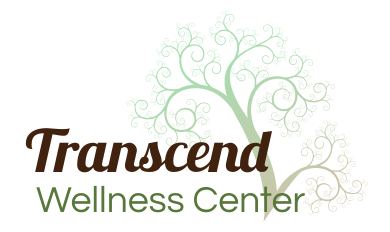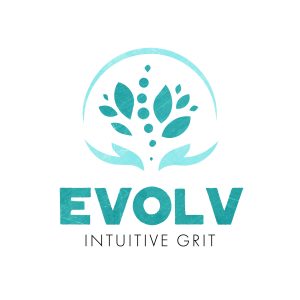
TRAUMA THERAPY
One of my specialties is working with people with trauma. I actually dislike using that term as many people tend to have a strong reaction to it when I say it out loud It is a loaded word and I think many equate the word trauma with being broken. I whole-heatedly endorse that trauma is a disruption to our emotional, physiological and energetic systems. However, people with trauma are far from being ‘broken’. Additionally, I do find that many people with traumatic events have had negative encounters in therapy where their trauma responses were misidentified as something else. I have worked with many who have entered presenting their main concern as their depression, anger issues, and/or anxiety. What we often uncover is that these are actually trauma based responses that are being mislabeled. This if often startling but validating for someone to learn. It often makes sense to them on an intuitive level.
My hope is to cultivate some understanding of trauma without sounding like a science journal article. There is growing researching demonstrating that trauma can be considered “BIG T Trauma” and “Little t Trauma”. Essentially, “Big T Trauma’ are those events in which one could easily read and say, ‘THAT IS TRAUMATIC”. Easy examples are war, sexual or physical assault, etc. “Little t Traumas” are life events that exceed our emotional resources: They are those emotionally loaded events that happen to (in my opinion) all of us, which when we reflect on we still feel the pain, and often get internalized into our being. This could be bullying incidences, painful experiences growing up, etc. I have the belief system that we all have ‘stuff’. The intensity of that stuff may vary but we all have it. How it shows itself can vary and some people’s stuff is more visible than others. More because they have triggers that are more accessible and thus, the stuff erupts in an unfriendly manner.
The interesting fact about trauma is that the brain does not really differentiate between “Big T” and “Little t” trauma. They both cause a similar disruption and often result in someone becoming emotionally flooded and are often stored in the brain with a negative belief system of being defective (e.g. I’m a failure, I’m worthless). Some people argue they cannot have trauma as someone else had it worse. Again, the brain does not differentiate. Cross comparing is invalidating and really ineffective. When a person’s trauma gets activated, there is a swift and major disruption which results in some type of emotional flooding. I have seen people experience panic, rage, extreme sadness and are often confused by the intensity of the response. This is often followed by a shame response where they feel the ‘lost control’ and feel badly about themselves not understanding that a trauma response is a different beast than an anger flare.
Most of my specialized trainings honor the mind-body connection. My background includes EMDR, Clinical Hypnosis, Somatic Experiencing and now Emotional Freedom Technique (EFT Tapping). They all merge well and seem ‘strange’ to people when first introduced to them. The main emerging theme is that so much of our trauma and unexpressed emotions are stored in our bodies. This can cause physical illness, struggles with emotions, reactivity, and so on. There is such a disruption to the body and the various systems that to truly process trauma out, one must often address the impact on the body. Simply stated, trauma activates our fight/flight/freeze responses and activates our nervous system. Simply telling someone to ‘settle down’ when activated is not going to settle them down. If it were that simple, I would be out of a job.
Trauma work is difficult work. Many avoid the work due to the intensity of it and just want to be rid of it. I always advise that the only way out is through. However, the work itself is difficult but can be structured in a way to not completely unhinge someone. In fact, there is a level of tolerance people have and trauma informed work recognizes that and tries to assist people in learning skills to manage that part. Meaning, one can do that hard work and zip up at the end of session. The therapist will track and ensure someone is within the therapeutic threshold to do the actual work. You do not have to relive every detail and most trauma informed approaches avoid doing that. It is not helpful to the process and it can actually traumatize a person further.
So, how can someone process painful experiences without reliving them? Most trauma informed approaches will take or divide the memories into smaller parts. There will be a great deal of time preparing a person and resourcing them with skills to manage emotion in general before the trauma work happens. The pace is set by the client not the therapist. The client will feel ready and the whole focus is containment of the painful process. The main goal of trauma work is to eliminate that automatic, negative emotional response and encourage the brain to ‘re consolidate’ the memory. Meaning, you will retain the memory but without that emotional charge. Imagine how different that might feel…..I always state that it allows a person space to cope and respond differently. They often reference feeling lighter and happier. This makes sense to me as our bodies serve as warehouses and there is much literature and research denoting how these charged memories, these trauma activated responses, overload our various systems and have a significantly negative impact on our physical and emotional well being.
If you suspect you might have trauma, notice heightened emotional responses to certain triggers, or feel heavy with ‘stuff’–then I greatly encourage you to consider this work. The most important aspect of counseling is that you have rapport and trust in your relationship with your chosen therapist. It is critical to the success of any therapy but entirely critical to trauma based work. Trauma work does not erase the past, it does not pretend to program the brain into thinking the negative event was positive, but it can release you from the emotional burdening that impacts every part of your life.
LOOKING FOR MORE HELP? READY TO GET STARTED? CLICK BELOW
CHECK OUT OUR PODCAST EVOLV HERE

JOIN OUR FACEBOOK COMMUNITY HERE
